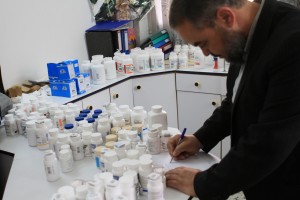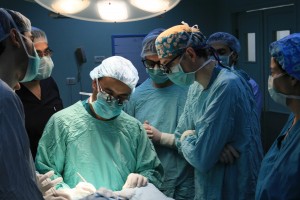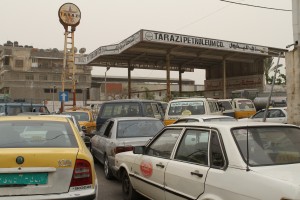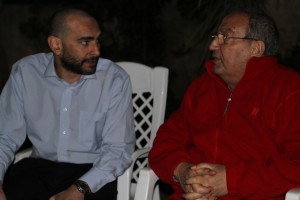Our first full day of work in Gaza, by Gerri Haynes
(Gerri Haynes, a former president of Washington Physicians for Social Responsibility, is once again sending back reports from inside blockaded Gaza. As she did four times before, Gerri has organized a team of doctors and other health care providers to work in hospitals and clinics in Gaza in an effort to directly help the people there and to bring attention to the ongoing humanitarian crisis that the Israeli blockade has created. Second in the series.)
Rich Grady, Ismael Zamilpa, Laura Hart and Ahmed Abeid worked through the day in one of the local hospitals caring for children with surgical needs. The patients they cared for were pre-screened by local physicians and some have
waited for months to receive this care. The surgical schedule will be full for every operating day we are here.Gasoline is scarce. Long lines at the gas stations (stations that have been able to find a supply of gasoline – many stations are closed), stretch for blocks. We were told that people sometimes wait in line two or three days to put gas in their car and to get fuel for their home generators. Home generators carry their own dangers – air pollution, carbon monoxide poisoning, and explosive fire. We learned today of many children who have been burned in fires from generator accidents.
This evening, we were hosted for dinner by Dr. Eyad El Sarraj in the garden of his Gaza City home. Dr. Sarraj founded the Gaza Community Mental Health Programme – the program all mental health providers refer to in Gaza. The service provided and research done by this organization is known throughout the world for its standards of excellence and work done in this extremely difficult environment. WPSR delegates first met Dr. Sarraj during our 1993 visit to Gaza – he is an honored colleague and a mentor for all who seek peace.RSS feed for comments on this post. TrackBack URI



